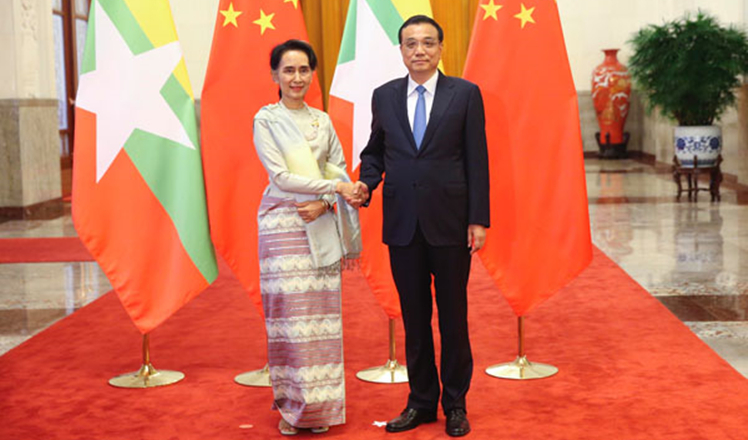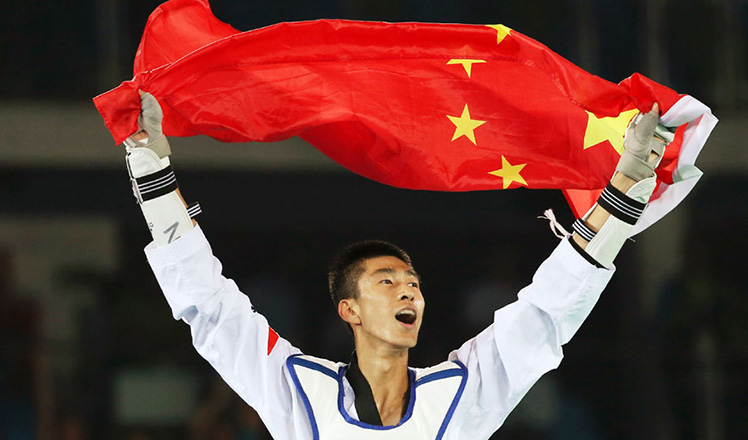G20 summit will yield blueprint for growth
Updated: 2016-08-22 08:08
By WU ZHENGLONG(China Daily)
|
||||||||
 |
|
This aerial photo taken on Sept 16, 2015 shows the Hangzhou Olympic Sports Center in Hangzhou, capital of East China's Zhejiang province. China will host the 2016 Group of Twenty (G20) summit in the eastern city of Hangzhou, a tourism city best known for its West Lake scenic spot, on Sept 4-5. [Photo/Xinhua] |
The lingering effects of the 2008 financial crisis still prevent the global economy from returning to its normal track. The recovery remains both slow and weak, and is full of uncertainties. The risks of further economic slowdown remain, and the financial markets continue to be tumultuous. Trade and investment protectionism is on the increase, and economic development is unbalanced. According to the latest World Bank report, the 2016 global growth forecast has been scaled down from 2.9 percent in January to 2.4 percent in June.
At such a critical juncture, China has the duty, the capacity and the confidence to seek greater consensus with the other G20 members, so the upcoming G20 Summit in Hangzhou can blaze new trails for the world's economic development.
China's theme for the summit-"Towards an Innovative, Invigorated, Interconnected and Inclusive World Economy"-could not be more pertinent.
What is more, China has proposed four principal items for the agenda: exploring more efficient growth models through innovation, improved global economic and financial governance, stronger international trade and investment, and inclusive and interconnected paths of development.
It is essential for the G20 members to agree on practical ways to achieve the theme and agenda.
The core task for the Hangzhou Summit is finding new sources of growth and exploring ways to tap their growth potential. The Hangzhou Summit will come up with a "G20 Blueprint for Growth-related Innovation". By seizing the new opportunities brought about by emerging new technologies, new industries and new factors of structural reforms, we can expect to fundamentally solve the problem of weak growth. In the context of this blueprint, the summit will formulate a number of action plans to promote innovation.
The G20 members will strengthen macroeconomic policy coordination and communication with a view to mitigating the uncertainty and negative spillover effects of their respective policies. In the meantime, the G20 members will undertake not to go for competitive devaluation of their currencies while pledging to step up cooperation in financial oversight, international taxation, energy, anti-corruption and other areas of endeavors. Agreeing to step up the pace of reform of the international financial institutions, including the IMF's quota system and governance structures, and the World Bank's shareholders' general meeting system, is also necessary to increase the voice of emerging countries in international financial organizations.
To promote international trade and investment, so as to inject greater vitality into the world economy, the Hangzhou Summit will formulate, for the first time, a "G20 Strategy for Global Trade Growth" and a "G20 Guideline for Global Investment Policy". Those G20 members that have not ratified the Trade Facilitation Agreement will be pushed to do so by the end of the year so as to advance its implementation as soon as possible.
The Hangzhou Summit will voice an explicit opposition to trade protectionism, and make a decision to extend the "moratorium on new trade restraints and protectionist measures" until 2018. Financial policy, fiscal policy and trade and investment policy are often described as the three pillars of global economy. However, the last seems a little too weak. The forthcoming summit should witness a strengthening of that pillar.
For the first time, the Hangzhou Summit will accord top priority to the issue of development within the global macroeconomic framework and formulate an action plan centered on implementing the United Nation's 2030 Agenda for Sustainable Development. Such an action plan will help African countries and the least-developed countries to accelerate their industrialization process and inject powerful impetus to worldwide efforts to reduce poverty and promote sustainable development.
With these outcomes, the G20 Summit in Hangzhou will go down as an important milestone in international development.
The author is a senior research fellow at the China Foundation for International Studies.
Courtesy: chinausfocus.com
- International trade corridor tested
- Netizens go crazy for beautiful young doctor who helps woman give birth in shopping mall
- Organ harvesting rumors slammed
- Beijing to try out 5G in key areas by 2020
- Nation's next generation of missiles to be highly flexible
- Li urges top advisers to rely on broad vision
- Malaysian authorities say ship carrying diesel hijacked
- Army commander: THAAD would 'easily affect' China-US ties
- Twin panda cubs confirmed born in Vienna zoo
- Four killed in boat collision in Greece
- Premier Li to receive Aung San Suu Kyi
- S Korean president names 3 new ministers for partial reshuffle

 Top 10 cities with highest GDP in H1
Top 10 cities with highest GDP in H1
 Chinese teenagers take gold, silver on 10m platform
Chinese teenagers take gold, silver on 10m platform
 US granted re-run to send China out of relay race
US granted re-run to send China out of relay race
 China inches toward gold after beating Netherlands
China inches toward gold after beating Netherlands
 Premier Li welcomes Aung San Suu Kyi
Premier Li welcomes Aung San Suu Kyi
 Zhao wins China's first gold medal in men's taekwondo
Zhao wins China's first gold medal in men's taekwondo
 World's top 10 innovative economies
World's top 10 innovative economies
 Dancing, food and religion, all in a Xinjiang wedding
Dancing, food and religion, all in a Xinjiang wedding
Most Viewed
Editor's Picks

|

|

|

|

|

|
Today's Top News
Trump outlines anti-terror plan, proposing extreme vetting for immigrants
Phelps puts spotlight on cupping
US launches airstrikes against IS targets in Libya's Sirte
Ministry slams US-Korean THAAD deployment
Two police officers shot at protest in Dallas
Abe's blame game reveals his policies failing to get results
Ending wildlife trafficking must be policy priority in Asia
Effects of supply-side reform take time to be seen
US Weekly

|

|







